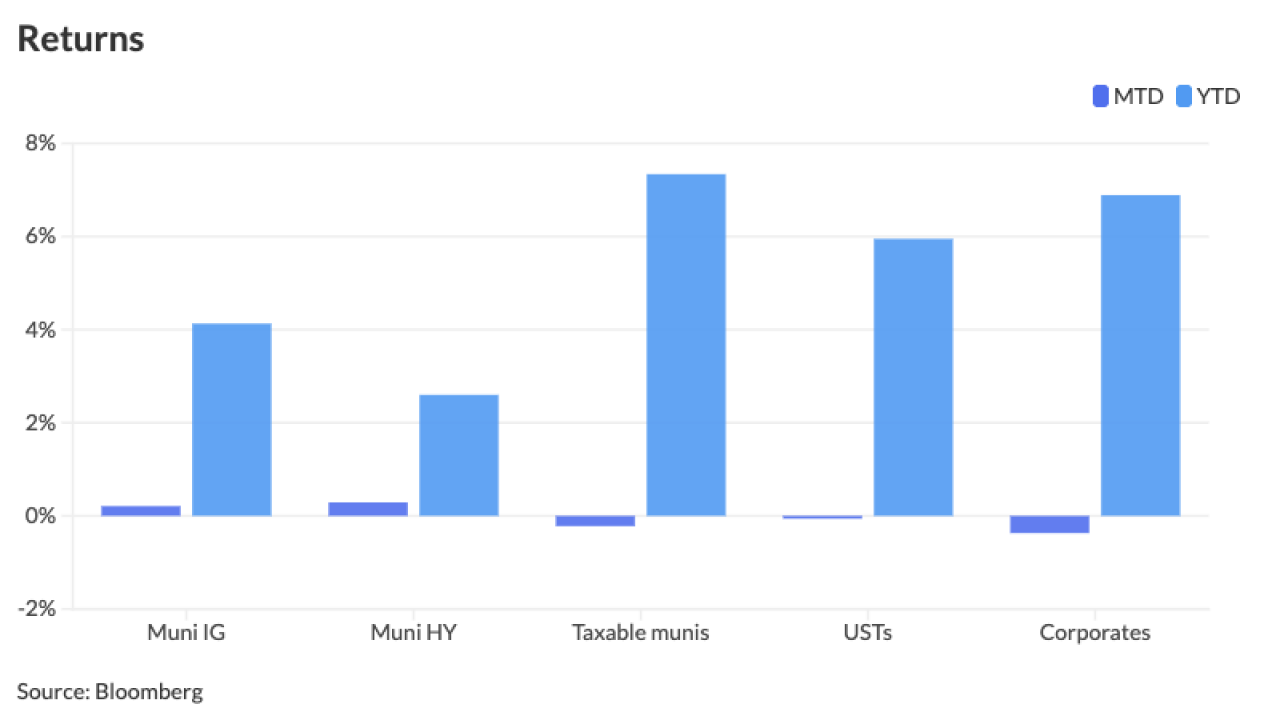CHICAGO — Ohio has reached an agreement to privatize its lucrative liquor distribution system for $1.4 billion through a newly created private nonprofit entity that will use the revenue for economic development.
The nonprofit, JobsOhio, will issue up to $1.5 billion of bonds to finance the 25-year deal. The bond sale is expected within the first quarter. JobsOhio officials said they had already assembled a finance team to bring the bonds to market, but declined to name the firms.
Ohio has a monopoly on liquor sales, one of the state’s most reliable and growing revenue sources. Many states monopolize liquor sales, but Ohio is one of the few to issue bonds backed by the profits.
The privatization will provide a steady revenue stream of $200 million annually that JobsOhio will use to finance job creation and economic development projects.
The deal, set to close after the bond sale later this quarter, marks a victory for Gov. John Kasich. The Republican governor created JobsOhio as one of his first actions when he took office last year. The liquor lease has the highest profile of Kasich’s several privatization proposals, and is key to balancing the current $55.5 billion, two-year general fund budget.
Kasich and other top state officials touted JobsOhio as a cutting-edge model of economic development efforts and said the final agreement to privatize the liquor system will protect Ohio taxpayers.
“This model that we’re creating in the state of Ohio is going to be studied across the country, and if we do it right, it will be envied,” Kasich said Monday afternoon in a conference call with reporters.
JobsOhio is expected to issue a combination of tax-exempt and taxable debt with 20-year or 25-year maturities to finance the purchase. The bonds would be backed solely by liquor profits, and the state would have no liability, even if JobsOhio goes bankrupt.
Proceeds will be used to make a one-time cash payment of $500 million to the state’s general fund. Another $750 million will be used to pay off existing liquor-profit-backed bonds that were issued by the state, and $150 million will be used to cover pending projects under the state’s Clean Ohio program, a clean-energy program that traditionally has been financed with liquor-backed bonds.
Going forward, JobsOhio will pay the state deferred payments equal to 75% of all annual liquor profit growth above a 3% baseline for 25 years. The entity has also agreed to set aside $43 million annually to continue to fund Clean Ohio-related projects.
The agreement could also save the state roughly $70 million it spends annually on economic development efforts that will be taken over by JobsOhio, said state budget director Tim Keen.
“This is an exceedingly complex transaction that is unusual for state government,” Keen said. “The resulting agreement is the culmination of six months of thorough, thoughtful and careful analysis.”
Fitch Ratings and Standard & Poor’s maintain ratings of AA-minus on the state’s outstanding long-term liquor-backed debt and Moody’s Investors Service maintains an equivalent Aa3.
Officials said they have already met with rating agencies and hope to maintain those ratings for the upcoming deal.
“The state of Ohio has been in this business for quite some time, using liquor revenues as credit,” said Mark Kvamme, JobsOhio’s interim investment chief. “We want to give us the best chance to retain that double-A rating, and we want to create a structure that pretty much mirrors the” outstanding liquor-backed bonds, he said. “We feel pretty comfortable that we’ve put together an offering that will be well-received in the marketplace.”
The contract features three provisions for termination, including if either party breaches essential provisions of the agreement, if the General Assembly and the governor approve legislation to terminate the contract, or if there is criminal wrongdoing that results in a significant financial loss.
If the contract is terminated, the state will still not be on the hook for the debt, according to Keen. It’s likely that JobsOhio would go through a bankruptcy or liquidation process to shed its debt before transferring the system back to the state.





